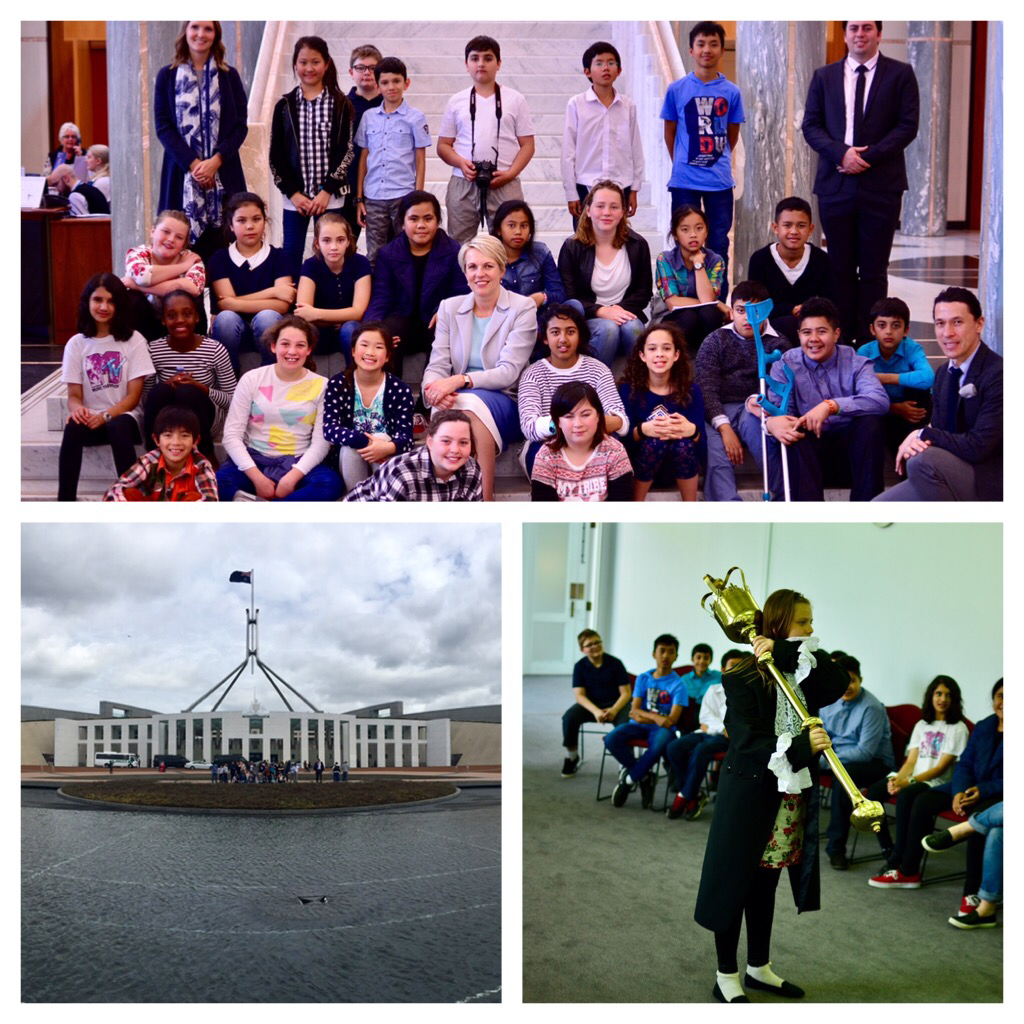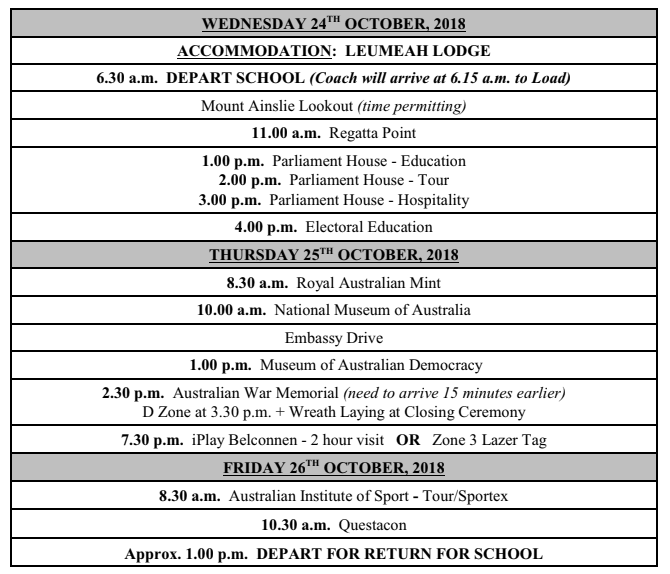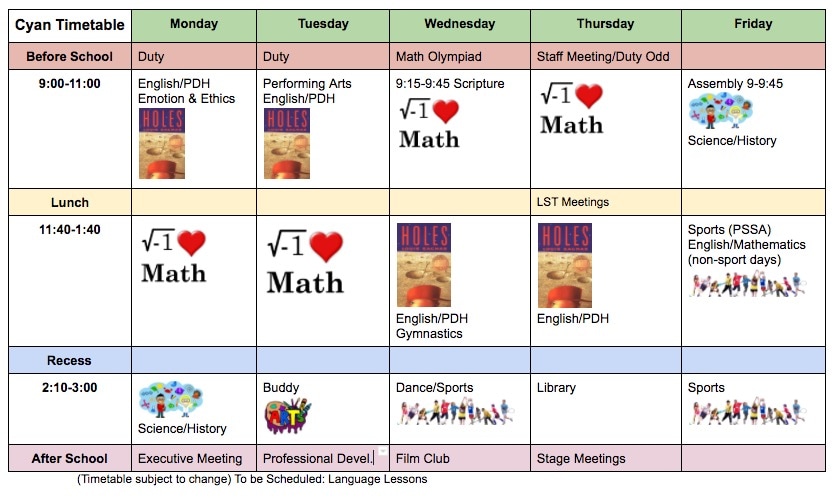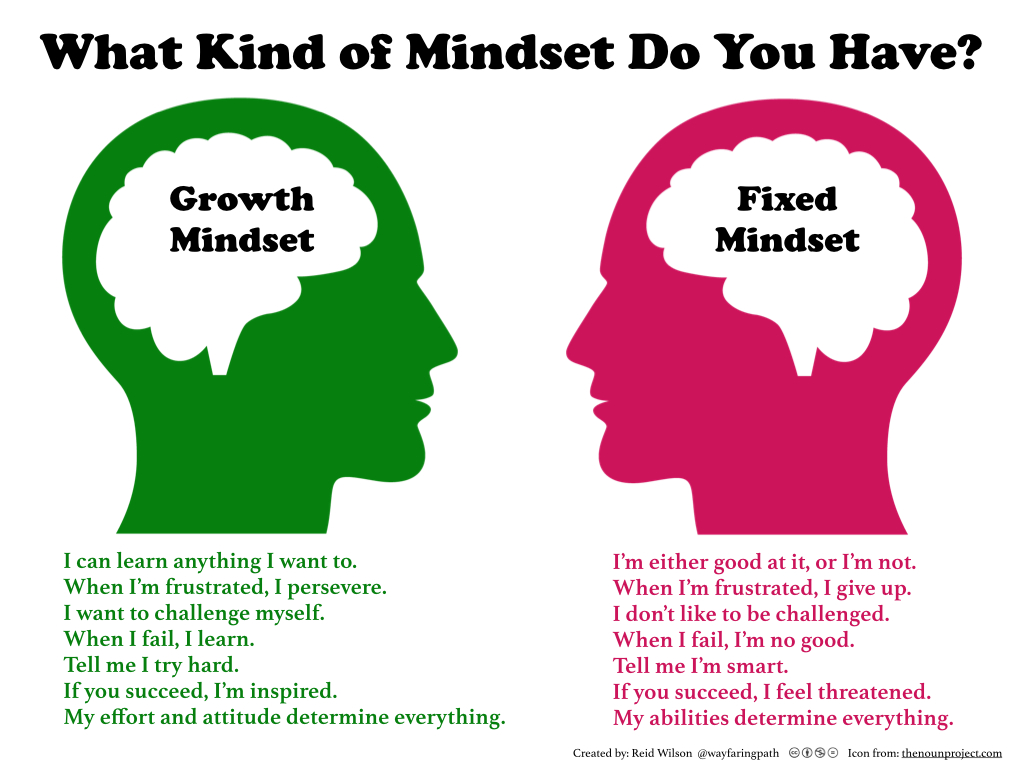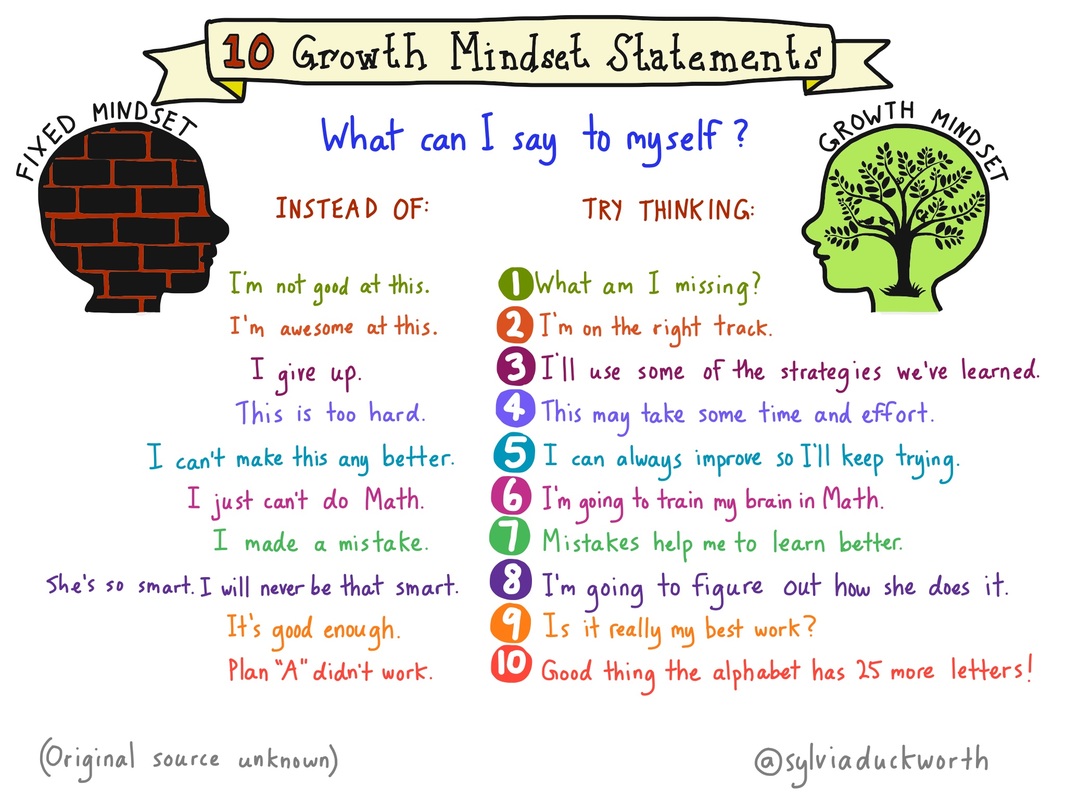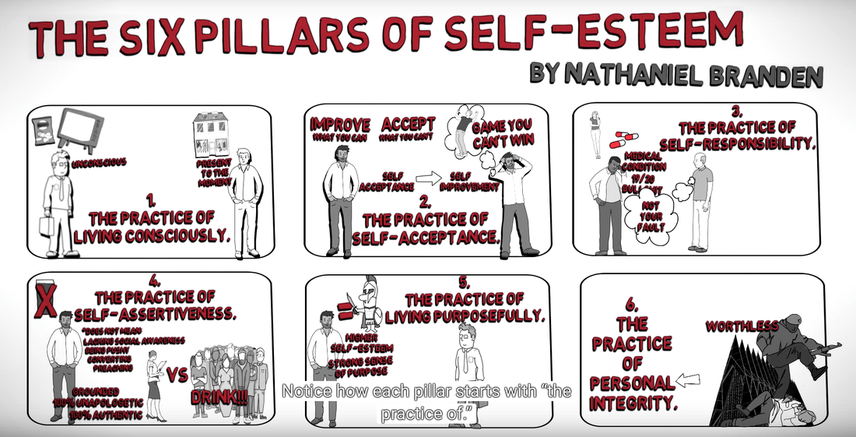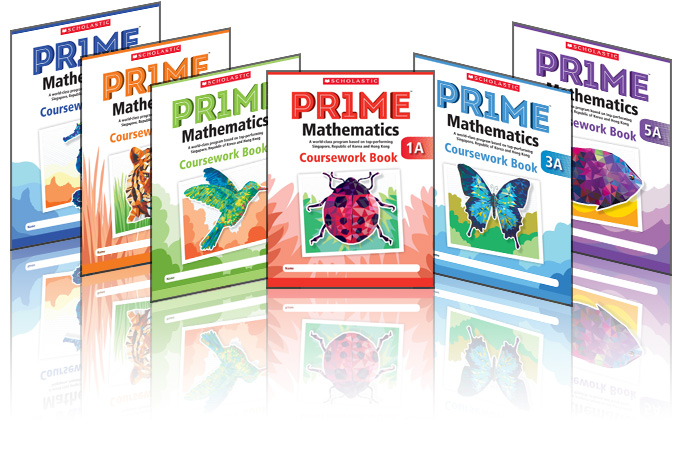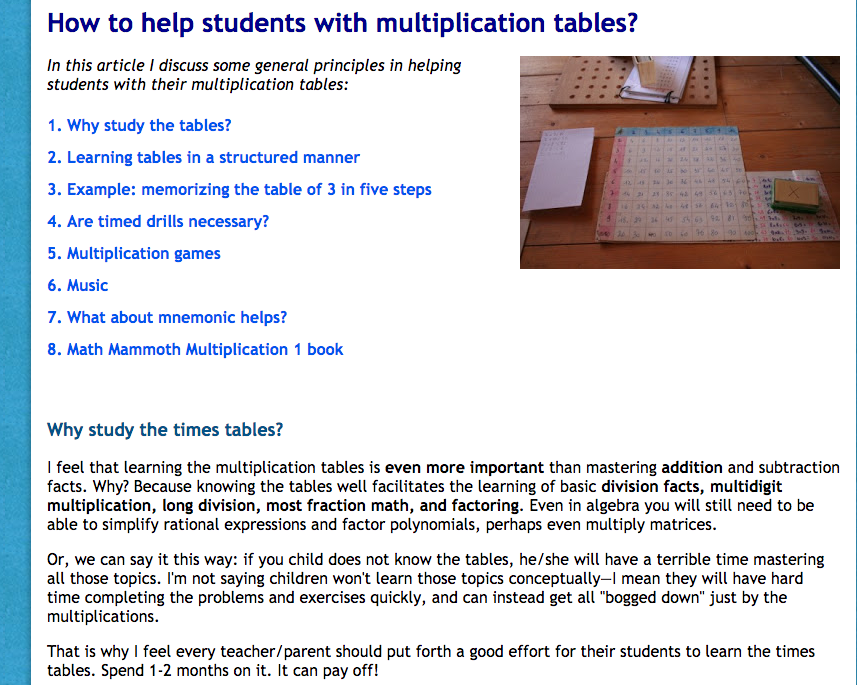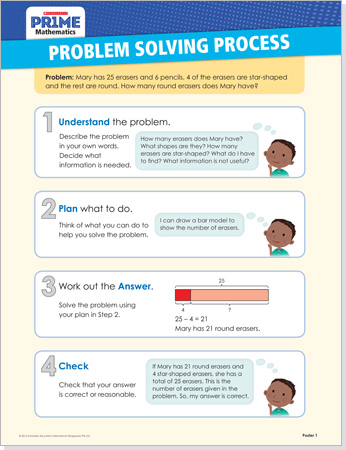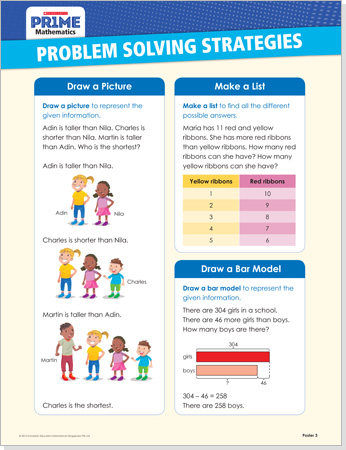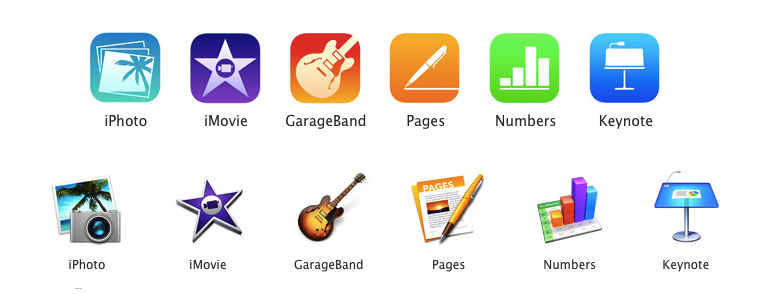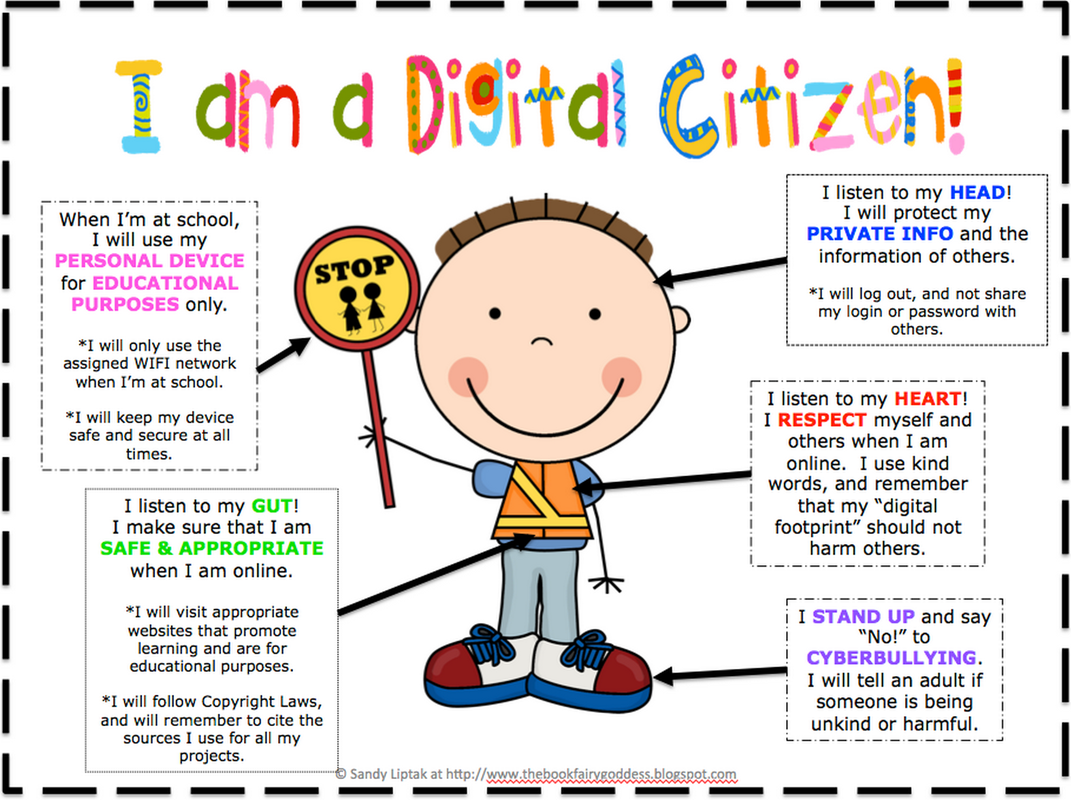Canberra Itinerary
Your browser does not support viewing this document. Click here to download the document.
Meet The Teacher Slides
Class Timetable
Habits of Organised Students
Keep it Simple
Overcomplicated plans often are hard to keep. Simplicity, while hard to keep, is the best way to ensure success. Thus, whether it's a study routine, device management or dietary regime--keep it simple to ensure success.
Develop Routines
Character is destiny, and daily habits build character. Routines allow automaticity and focus on deeper thinking. Thus, above all, develop routine.
Have a place for everything, and put everything in its place
If it does not have a place, that means you need to always manage it. Set a place for every thing and thus organisation maintains itself.
Keep a to-do-list
Yes. Do.
Overcomplicated plans often are hard to keep. Simplicity, while hard to keep, is the best way to ensure success. Thus, whether it's a study routine, device management or dietary regime--keep it simple to ensure success.
Develop Routines
Character is destiny, and daily habits build character. Routines allow automaticity and focus on deeper thinking. Thus, above all, develop routine.
Have a place for everything, and put everything in its place
If it does not have a place, that means you need to always manage it. Set a place for every thing and thus organisation maintains itself.
Keep a to-do-list
Yes. Do.
Research on Mindset
The main researcher on mindset is Carol Dweck. Her paper "Even Geniuses have to Work Hard" can be found here
The main researcher on mindset is Carol Dweck. Her paper "Even Geniuses have to Work Hard" can be found here
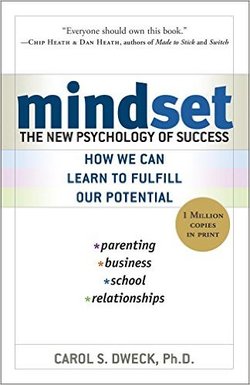
Every so often a truly groundbreaking idea comes along. This is one. Mindset explains:
In a fixed mindset, people believe their basic qualities, like their intelligence or talent, are simply fixed traits. They spend their time documenting their intelligence or talent instead of developing them. They also believe that talent alone creates success—without effort. They’re wrong.
In a growth mindset, people believe that their most basic abilities can be developed through dedication and hard work—brains and talent are just the starting point. This view creates a love of learning and a resilience that is essential for great accomplishment. Virtually all great people have had these qualities.
Teaching a growth mindset creates motivation and productivity in the worlds of business, education, and sports. It enhances relationships. When you read Mindset, you’ll see how.
- Why brains and talent don’t bring success
- How they can stand in the way of it
- Why praising brains and talent doesn’t foster self-esteem and accomplishment, but jeopardizes them
- How teaching a simple idea about the brain raises grades and productivity
- What all great CEOs, parents, teachers, athletes know
In a fixed mindset, people believe their basic qualities, like their intelligence or talent, are simply fixed traits. They spend their time documenting their intelligence or talent instead of developing them. They also believe that talent alone creates success—without effort. They’re wrong.
In a growth mindset, people believe that their most basic abilities can be developed through dedication and hard work—brains and talent are just the starting point. This view creates a love of learning and a resilience that is essential for great accomplishment. Virtually all great people have had these qualities.
Teaching a growth mindset creates motivation and productivity in the worlds of business, education, and sports. It enhances relationships. When you read Mindset, you’ll see how.
Mindset is COnnected to SElf-Esteem
Prime Maths To support Student Learning
Parents will be able to order books online and have them delivered to their home www.ljharper.com.au
Timestables Help?
Problem Solving Strategies
Bringing your own Device? Some of these Apps will help...
Helping your child's reading skills

Some tips on staying safe online...
BYOD 2014
Your browser does not support viewing this document. Click here to download the document.
Are you appy?

With so many apps out there, we decided to make a short list of apps that we thought top our BYOD list. Amazingly, most of these are free. Click the name to preview the app.
Must have apps
Explain Everything
iMovie
Pages
Google Drive (Free)
Dictionary (Free)
Weebly (Free)
Instashare (Free)
iBooks (Free)
Prezi (Free)
Snapseed (Free)
Optional, but highly recommended:
Garageband
Keynote
Must have apps
Explain Everything
iMovie
Pages
Google Drive (Free)
Dictionary (Free)
Weebly (Free)
Instashare (Free)
iBooks (Free)
Prezi (Free)
Snapseed (Free)
Optional, but highly recommended:
Garageband
Keynote
Homework help?
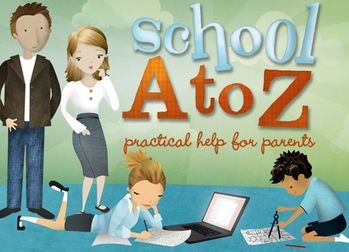
Helping your child with homework? Want to get an update of the terms and strategies used in schools?
The DEC have designed this very helpful website that support our understanding of all things school, from A to Z.
The DEC have designed this very helpful website that support our understanding of all things school, from A to Z.
Motivation 2.0
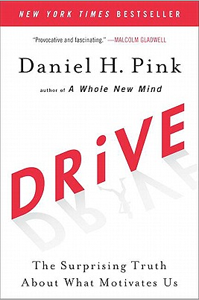
Dan Pink in his pivotal book, Drive, has debunked external awards' abilities to keep us motivated (for long). Also, extrinsic awards are detrimental to creative and innovative thinking. When you are trying to problem solve or create a novel solution to a quandary, it is no help to have someone dangle incentives in front of you. In fact, it has been proven time and time again that it actually narrows the mind and destroys long term motivation. With education and our work places structured the way it is, we have to live with external awards dangled in front of our curious and always learning brains and fight the temptation to focus on those ephemeral awards alone. Many of us have experienced this. An award feels good for a short while, like a team win, a prize or a raise, but we plateau quite quickly back to our normal motivation levels or even worse we won't perform unless we get another award, leading to a vicious cycle of the award-treadmill.
On the other hand, intrinsic factors are much more powerful to keep us motivated and Dan Pink has identified three things that are essential to our internal and longer-lasting intrinsic motivation. Those are:
It's no surprise, is it? We have all felt that when we are allowed to choose what we want to do, how we do it and learn it until we have mastered it, then we feel internally motivated to continue learning and performing. That is life-long learning. While we have limits on us on how autonomous we can be, there is still plenty of wiggle room for us to choose what we do and how we do it.
On the other hand, intrinsic factors are much more powerful to keep us motivated and Dan Pink has identified three things that are essential to our internal and longer-lasting intrinsic motivation. Those are:
- Autonomy
- Purpose
- Mastery
It's no surprise, is it? We have all felt that when we are allowed to choose what we want to do, how we do it and learn it until we have mastered it, then we feel internally motivated to continue learning and performing. That is life-long learning. While we have limits on us on how autonomous we can be, there is still plenty of wiggle room for us to choose what we do and how we do it.
Engaging our young learners

With what we know now about learning and motivation, pragmatic methods to help your child become a life-long learner have emerged. Below are a sample (click to read their page)
Websites:
Ten Simple Strategies to Re-engage Students
Written by Andrew McCormick for the well-established online repository of educational information, Edutopia. These ten fun tips are applicable to all people, from teachers, parents and workers.
Ten Tips to Help Boys Succeed
Focused on boys primarily, these tips are from proven educators and parents who have found these to be the most practical in engaging boys, many of which I use myself.
Videos:
Motivating to Learn
Presented by Laura Minnigrode, this short video pretty much sums up the ethos of motivating students. Moreover, her comments on making praise and feedback specific is spot on!
Motivating to Read
You are your habits. Reading needs to be a habit that is built over time. Hence, there needs to be a long term plan to improve reading. Again, autonomy is important, so let the child choose what they read. Often, they will want to read what their friends are reading.
20 Ways to Provide Effective Feedback for Learning
Crafted by the TeachThought staff, these essential tips for providing feedback is the most powerful way we can motivate our children.
Websites:
Ten Simple Strategies to Re-engage Students
Written by Andrew McCormick for the well-established online repository of educational information, Edutopia. These ten fun tips are applicable to all people, from teachers, parents and workers.
Ten Tips to Help Boys Succeed
Focused on boys primarily, these tips are from proven educators and parents who have found these to be the most practical in engaging boys, many of which I use myself.
Videos:
Motivating to Learn
Presented by Laura Minnigrode, this short video pretty much sums up the ethos of motivating students. Moreover, her comments on making praise and feedback specific is spot on!
Motivating to Read
You are your habits. Reading needs to be a habit that is built over time. Hence, there needs to be a long term plan to improve reading. Again, autonomy is important, so let the child choose what they read. Often, they will want to read what their friends are reading.
20 Ways to Provide Effective Feedback for Learning
Crafted by the TeachThought staff, these essential tips for providing feedback is the most powerful way we can motivate our children.
